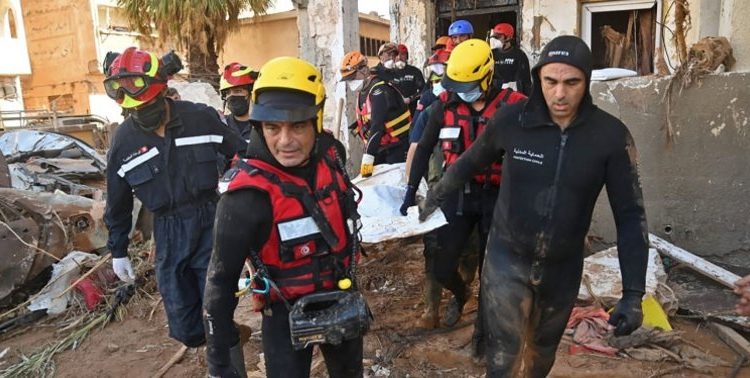WHO: Nearly 4,000 Libya flood victims identified, toll likely to rise
Nearly 4,000 people who were killed in Libya’s devastating floods have been identified, the World Health Organization (WHO) said on Saturday.
The bodies of 3,958 people have been recovered and identified, and death certificates have been issued for them, the organization added.
The WHO expects the death toll to rise as search and rescue teams are likely to recover more bodies in Libya’s east that was lashed by the deluge.
More than 9,000 people are still missing, according to WHO.
A group of Libyan data analysts and researchers also said there had been around 4,000 confirmed deaths in a count on Saturday.
In the past few days, conflicting figures have emerged from politically divided Libya, ranging from 5,000 to 11,000. Earlier in the week, the mayor of the worst-hit city of Derna in eastern Libya had said up to 20,000 people could have died there.
The government based in the east of the civil war-hit country put the number of officially registered deaths at 3,166.
On Friday, the area’s health minister Othman Abdel Jalil said from now on, only official figures would be valid.
“The Ministry of Health is responsible for the data and all figures must be taken from this ministry,” Abdel Jalil said at a press conference.
Earlier, a spokesman for the International Committee of the Red Cross (ICRC) in Libya, Bashir Omar, told dpa that it was too early to give reliable figures. “The disaster is still playing out. Rescue operations are ongoing. Therefore, we cannot predict the final death toll or injured,” he said.
Fears have grown over the health situation in Derna in particular.
Two dams in the mountains above Derna collapsed amid the floods, compounding the disaster and triggering allegations of years-long neglect and a lack of maintenance.
Concerns are growing about the safety of water in the area. Some 150 diarrhoea cases have been detected so far in the city, due to contaminated drinking water, a Libyan medical official said Saturday.
“Under all circumstances in Derna, it is not allowed to use the ordinary drinking water because its contamination percentage is very high,” Director of Libya’s National Centre for Disease Control Haider al-Sayeh said in a video statement.

